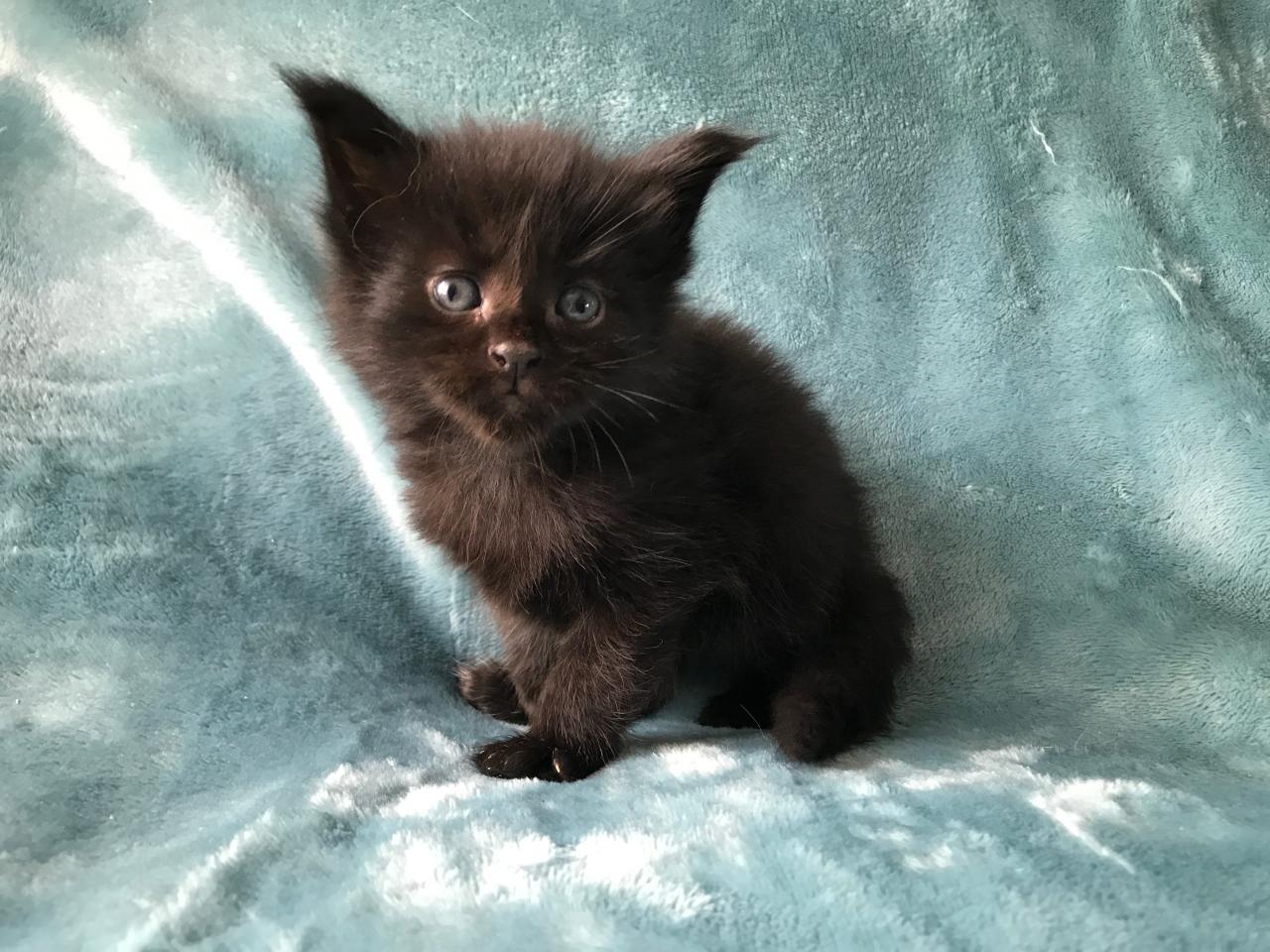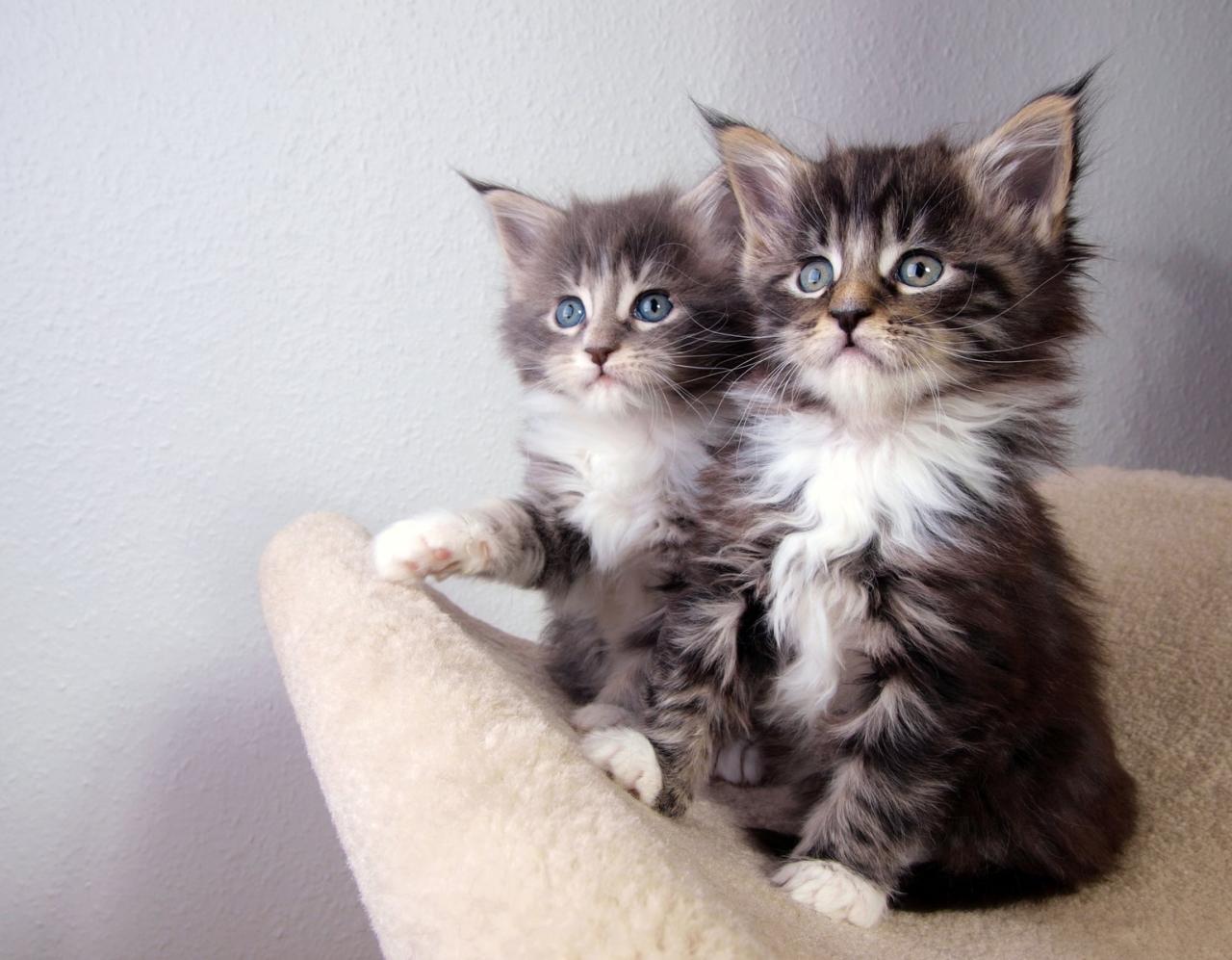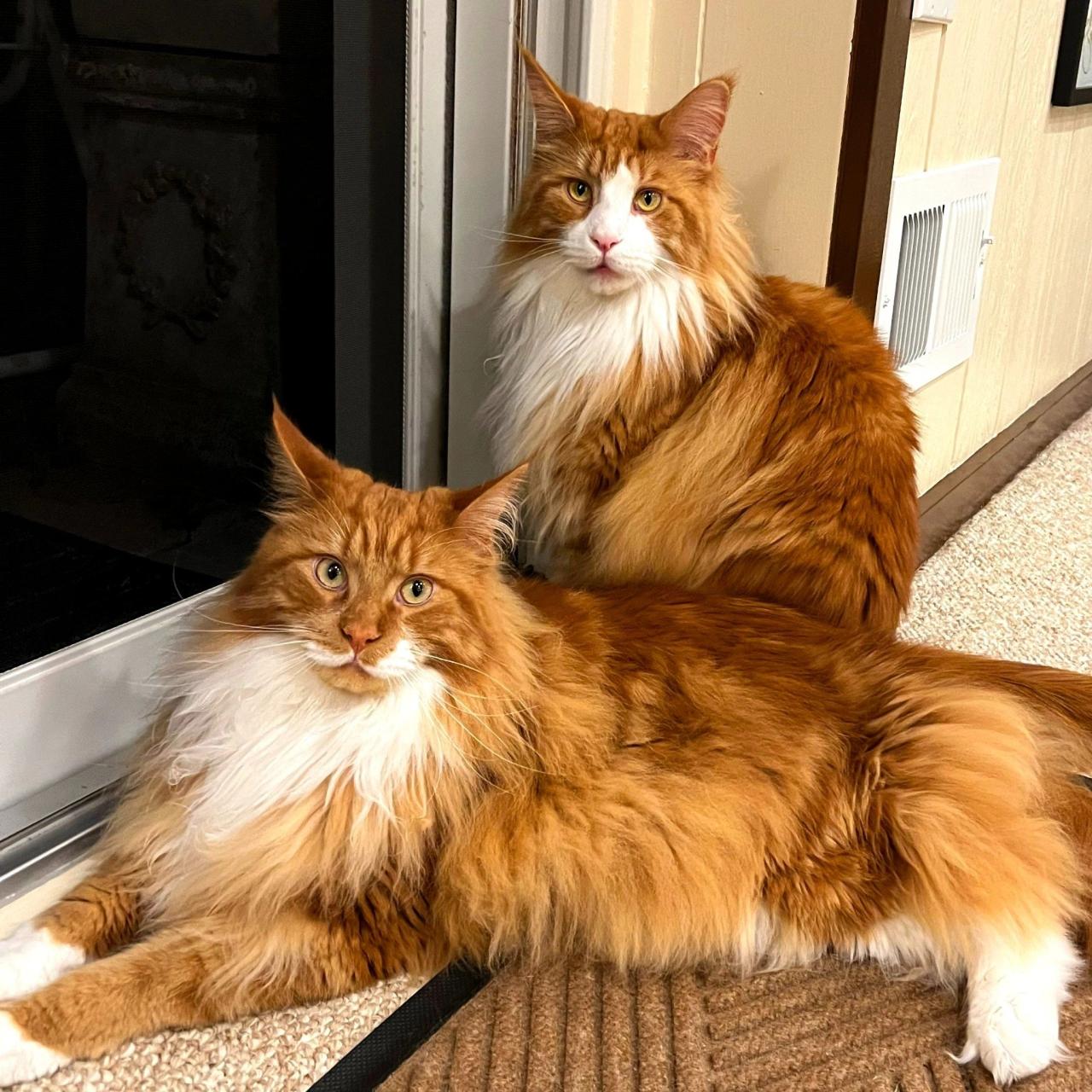Maine coon kittens sale – Maine Coon kittens for sale offer a unique opportunity to bring home a gentle giant with a captivating personality. These majestic felines have captured the hearts of cat enthusiasts worldwide with their distinctive appearance, affectionate nature, and impressive size. Join us as we embark on a journey to discover the enchanting world of Maine Coon kittens, providing you with all the essential information you need to make an informed decision when choosing your perfect feline companion.
Our comprehensive guide delves into the breed’s history, physical characteristics, temperament, and care requirements. We’ll explore the importance of finding reputable breeders, selecting a healthy kitten, and understanding the costs associated with owning a Maine Coon. Additionally, we’ll provide valuable tips on socialization, training, and ensuring your kitten’s well-being throughout its life.
Market Overview
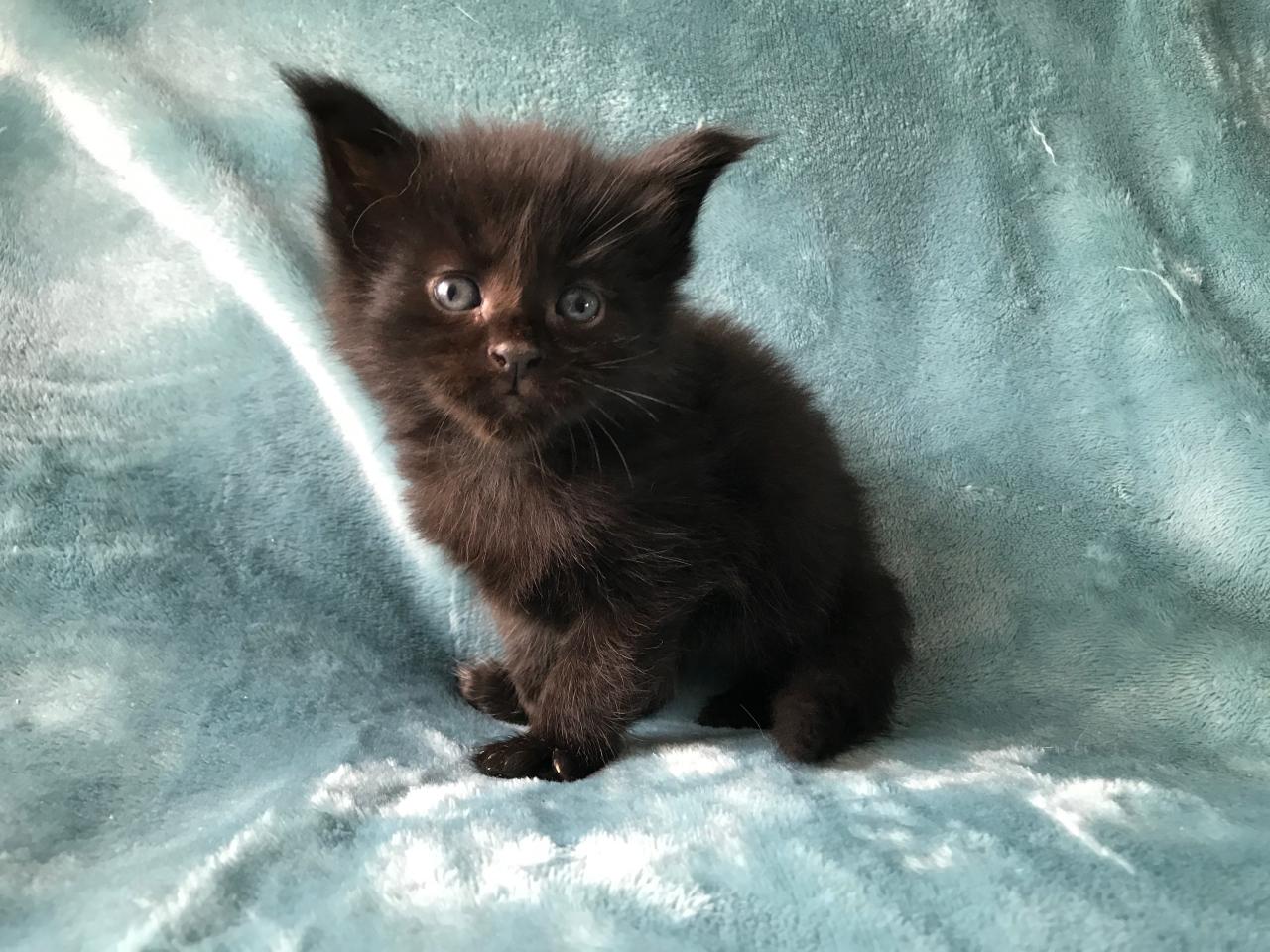
The market for Maine Coon kittens has been experiencing steady growth in recent years, driven by increasing popularity and demand for this beloved breed. The supply of Maine Coon kittens has also been growing, with more breeders entering the market to meet the growing demand.
The pricing of Maine Coon kittens is influenced by several factors, including the kitten’s lineage, coat color and pattern, and breeder reputation. In general, kittens from well-known breeders with exceptional bloodlines command higher prices.
Supply and Demand
The supply of Maine Coon kittens has increased in recent years to meet the growing demand. This has led to a more competitive market, with breeders offering a wider range of prices and incentives to attract buyers.
Pricing Factors
The pricing of Maine Coon kittens is influenced by several factors, including:
- Lineage:Kittens from well-known breeders with exceptional bloodlines command higher prices.
- Coat color and pattern:Certain coat colors and patterns, such as the classic tabby and the silver, are more popular and therefore command higher prices.
- Breeder reputation:Breeders with a good reputation for producing healthy, well-socialized kittens can charge higher prices.
Breed Characteristics
Maine Coon kittens possess a captivating presence that sets them apart. Their majestic appearance, coupled with their gentle nature, makes them a sought-after breed among cat enthusiasts.
Physically, Maine Coon kittens are characterized by their large size and robust build. Their thick, luxurious coats, which come in a wide array of colors and patterns, provide insulation against harsh climates. Their distinctive facial features include large, expressive eyes, high cheekbones, and tufted ears that add to their regal demeanor.
Temperament and Personality
Maine Coons are renowned for their amiable and affectionate personalities. They are known to be gentle giants, forming strong bonds with their human companions. Their playful and curious nature makes them delightful additions to families with children and other pets.
Maine Coons are also known for their intelligence and adaptability, making them easy to train and care for.
Health Considerations and Lifespan
Maine Coons are generally healthy cats, but like all breeds, they may be prone to certain health conditions. Regular veterinary checkups and preventive care can help detect and manage any potential health issues. With proper care, Maine Coons can live long and fulfilling lives, with an average lifespan of 12-15 years.
Care and Maintenance
Owning a Maine Coon kitten entails a responsibility to provide proper care and maintenance to ensure their well-being and longevity. This involves fulfilling their nutritional needs, maintaining a healthy coat, and providing ample opportunities for exercise. Regular veterinary checkups and vaccinations are crucial for preventing health issues and detecting any potential problems early on.
Feeding
Maine Coons are known for their hearty appetites and require a diet rich in high-quality protein, carbohydrates, and fats. Kitten food specifically formulated for their age and developmental stage should be provided until they reach adulthood at around 12 months of age.
Dry food can be offered as a supplement to wet food, but it is important to monitor their water intake as dry food can be dehydrating.
- Provide a consistent feeding schedule with meals spaced evenly throughout the day.
- Choose high-quality kitten food with real meat as the first ingredient.
- Avoid feeding your kitten table scraps or human food, as this can lead to digestive issues.
- Monitor your kitten’s weight regularly to ensure they are maintaining a healthy body condition.
Grooming
Maine Coons have long, thick coats that require regular brushing to prevent mats and tangles. Brushing should be done at least once a week, and more frequently during shedding seasons. Use a wide-toothed comb to remove any loose hair and a slicker brush to distribute natural oils throughout the coat.
- Brush your kitten’s coat in the direction of hair growth.
- Bathe your kitten only when necessary, as excessive bathing can strip the coat of its natural oils.
- Trim your kitten’s nails regularly to prevent scratching.
- Check your kitten’s ears and eyes regularly for any signs of infection or discharge.
Exercise
Maine Coons are playful and energetic cats that require ample opportunities for exercise to stay healthy and happy. Provide them with a variety of toys to play with, such as interactive wands, scratching posts, and catnip mice. Supervised outdoor time in a secure enclosure can also be beneficial for their physical and mental well-being.
- Set aside time each day for interactive play sessions with your kitten.
- Provide your kitten with a variety of toys to keep them entertained.
- Consider leash training your kitten to allow for safe outdoor exploration.
- Monitor your kitten’s activity levels and adjust their exercise routine as needed.
Veterinary Care
Regular veterinary checkups are essential for maintaining the health and well-being of your Maine Coon kitten. These checkups allow your veterinarian to monitor their growth and development, detect any potential health issues early on, and provide necessary vaccinations.
- Schedule your kitten’s first veterinary checkup within the first few weeks of bringing them home.
- Follow your veterinarian’s recommended vaccination schedule to protect your kitten from common feline diseases.
- Seek veterinary attention immediately if your kitten shows any signs of illness or distress.
- Consider pet insurance to cover the cost of unexpected veterinary expenses.
Common Health Issues
Maine Coons are generally healthy cats, but like all breeds, they are prone to certain health issues. Some common health issues to be aware of include:
- Hypertrophic cardiomyopathy (HCM): A condition in which the heart muscle becomes thickened, leading to heart failure.
- Polycystic kidney disease (PKD): A condition in which cysts develop in the kidneys, leading to kidney failure.
- Hip dysplasia: A condition in which the hip joint does not develop properly, leading to pain and lameness.
- Dental disease: Maine Coons are prone to dental problems, such as gingivitis and periodontitis.
Regular veterinary checkups and preventive measures, such as proper nutrition, exercise, and dental care, can help reduce the risk of these health issues and ensure the long-term health and well-being of your Maine Coon kitten.
Finding Reputable Breeders
Finding reputable Maine Coon breeders is crucial for obtaining healthy and well-bred kittens. Here are some tips to help you identify trustworthy breeders:
Look for breeders who are certified by reputable organizations.This indicates that they adhere to ethical breeding practices and maintain high standards for their cats.
Breeder Certification and Ethical Practices
Reputable breeders will prioritize the health and well-being of their cats. They will:
- Screen breeding cats for genetic disorders.
- Provide proper veterinary care, including vaccinations and regular check-ups.
- Socialize kittens early on to ensure they are well-adjusted and friendly.
- Maintain clean and spacious facilities for their cats.
- Adhere to ethical breeding practices, such as avoiding inbreeding and overbreeding.
Benefits of Visiting Breeders in Person
Visiting breeders in person before making a purchase offers several advantages:
- You can observe the breeder’s facilities and interact with the cats.
- You can ask questions and get a sense of the breeder’s knowledge and experience.
- You can meet the parents of the kittens and assess their health and temperament.
- You can observe the kittens’ interactions with their littermates and humans.
- You can build a relationship with the breeder and ensure they are supportive after the purchase.
Kitten Selection: Maine Coon Kittens Sale
Selecting a Maine Coon kitten is a significant decision that requires careful consideration. Several factors play a crucial role in ensuring you find the perfect companion for your lifestyle and personality.
Assessing Health
The health of your kitten is paramount. Look for kittens with bright eyes, a clean nose, and a healthy coat. Their energy levels should be high, and they should be free from any discharge or respiratory issues. Always request the kitten’s medical records, including vaccination and deworming history.
Observing Temperament
Maine Coons are known for their gentle and affectionate nature. When selecting a kitten, observe their interactions with other kittens and humans. A well-socialized kitten will be playful, curious, and comfortable being handled. Avoid kittens that are overly shy or aggressive.
Matching Lifestyle and Personality, Maine coon kittens sale
Maine Coons are active cats that require plenty of space to roam and play. Consider your lifestyle and living situation when selecting a kitten. If you have a small apartment, a less active kitten may be a better fit. On the other hand, if you have an active family, a more playful kitten would be ideal.
Pricing and Cost Considerations
Maine Coon kittens can vary in price depending on several factors, including their lineage, color, and the reputation of the breeder. Generally, expect to pay between $600 to $2,000 for a purebred Maine Coon kitten from a reputable breeder.
Factors Influencing Pricing
- Lineage:Kittens from champion bloodlines or with a documented pedigree may command higher prices.
- Color:Rare or unique color patterns, such as blue or silver, can increase the cost of a kitten.
- Breeder Reputation:Breeders with a proven track record of producing healthy, well-socialized kittens may charge more for their services.
Additional Costs of Ownership
In addition to the initial purchase price, there are ongoing costs associated with owning a Maine Coon cat, including:
- Food:Maine Coons are large cats and require a high-quality diet. Expect to spend around $50 to $100 per month on food.
- Veterinary Care:Regular veterinary checkups, vaccinations, and parasite prevention are essential for keeping your cat healthy. These costs can range from $200 to $500 per year.
- Supplies:You will also need to purchase supplies such as a litter box, litter, toys, and a scratching post. These costs can add up to around $100 to $200 per year.
Legal Considerations
Purchasing a Maine Coon kitten is a significant investment. It is essential to safeguard both the buyer’s and seller’s interests by obtaining a written contract. This document Artikels the terms and conditions of the sale, ensuring clarity and protecting legal rights.
Contractual Obligations
A well-drafted contract should include:
- Identification of the parties involved (buyer and seller)
- Description of the kitten, including breed, color, and any distinguishing characteristics
- Purchase price and payment terms
- Health guarantee and vaccination records
- Breeder’s responsibilities, such as providing pedigree and support
- Buyer’s responsibilities, such as providing proper care and maintenance
- Dispute resolution mechanisms
Pet Insurance
Pet insurance is a valuable consideration for Maine Coon owners. It provides financial protection against unexpected veterinary expenses, which can be substantial for this breed.
Insurance policies vary in coverage and cost. Buyers should research different options and choose a plan that meets their needs and budget.
Socialization and Training
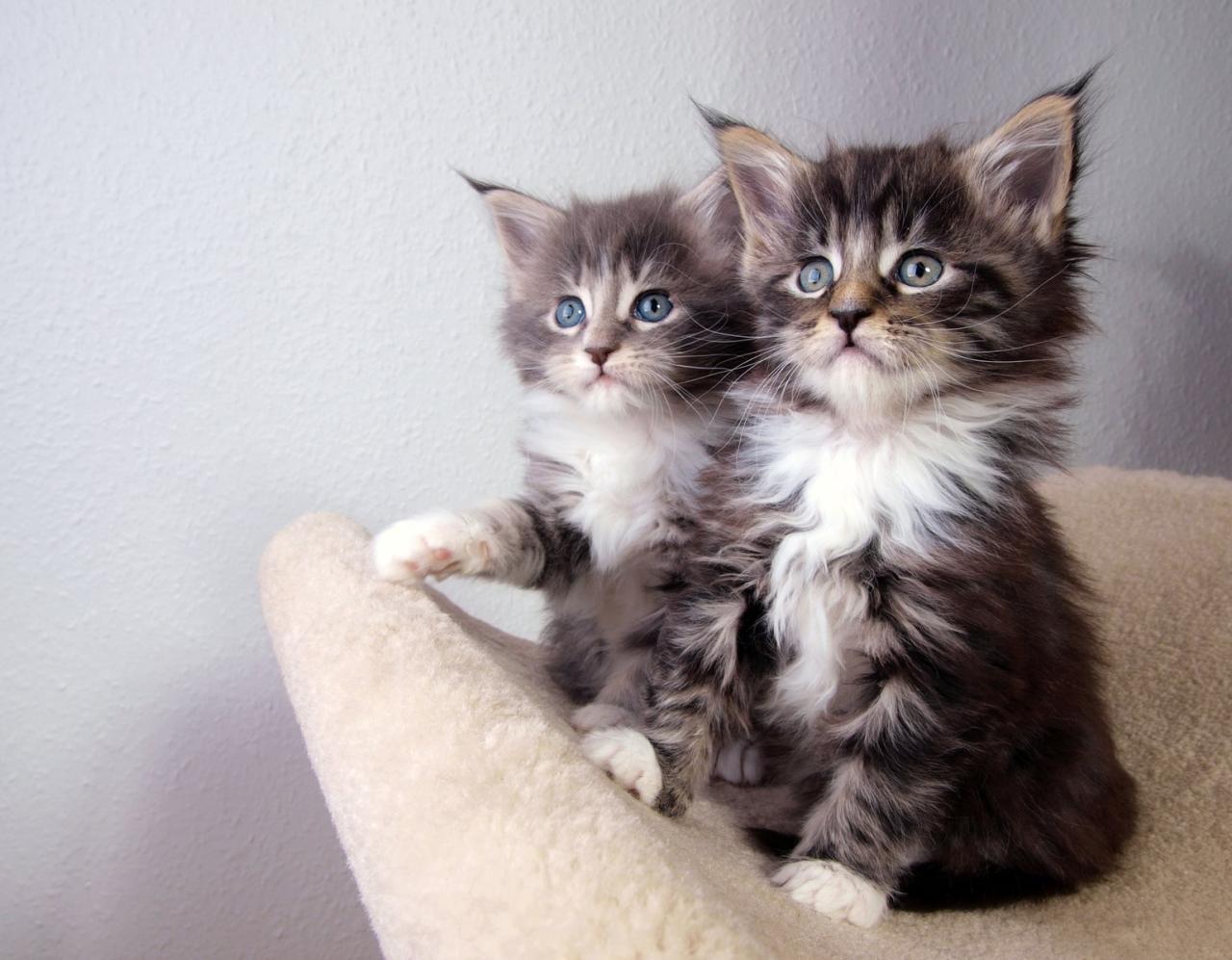
Early socialization is crucial for Maine Coon kittens, shaping their temperament and adaptability. Exposing them to diverse experiences during their formative weeks fosters confidence and prevents behavioral issues.Introduce kittens to various people, including children, by handling them gently and allowing them to explore.
Supervise interactions with other animals, gradually introducing them to friendly dogs or cats. Encourage exploration by providing a variety of toys, climbing structures, and hiding places, exposing them to different textures, sounds, and smells.
Basic Training
Maine Coons are intelligent and can learn basic commands with patience and positive reinforcement. Start with simple commands like “sit,” “stay,” and “come,” using treats or praise as rewards. Keep training sessions short and engaging, gradually increasing the difficulty as the kitten progresses.
Health and Safety

Maine Coon cats are generally healthy and robust, but like all breeds, they are prone to certain health issues. It is important to be aware of these potential problems so that you can take steps to prevent or treat them.
Common Health Issues
Some of the most common health issues seen in Maine Coon cats include:
- Hypertrophic cardiomyopathy (HCM):A condition in which the heart muscle becomes thickened and enlarged. This can lead to heart failure and is the leading cause of death in Maine Coon cats.
- Polycystic kidney disease (PKD):A condition in which cysts develop in the kidneys. This can lead to kidney failure and is often fatal.
- Hip dysplasia:A condition in which the hip joint does not develop properly. This can lead to pain, lameness, and arthritis.
- Dental disease:Maine Coon cats are prone to dental disease, including gingivitis and periodontitis. This can lead to pain, tooth loss, and other health problems.
- Obesity:Maine Coon cats are prone to obesity, which can lead to a number of health problems, including heart disease, diabetes, and arthritis.
Safety Precautions
In addition to being aware of the potential health issues that can affect Maine Coon cats, it is also important to take steps to ensure their safety. These steps include:
- Providing a safe environment:Maine Coon cats should be kept indoors to protect them from predators, cars, and other dangers.
- Vaccinating your cat:Maine Coon cats should be vaccinated against common diseases, such as feline distemper, feline leukemia, and rabies.
- Spaying or neutering your cat:Spaying or neutering your cat will help to prevent unwanted litters and certain health problems, such as mammary cancer and uterine infections.
- Providing regular veterinary care:Maine Coon cats should see a veterinarian for regular checkups and vaccinations. Your veterinarian can also help you to identify and treat any health problems that your cat may develop.
By following these tips, you can help to ensure that your Maine Coon cat lives a long and healthy life.
Lifestyle Considerations

Maine Coon cats have unique needs and preferences that should be taken into account before bringing one into your home. They are known for their playful and affectionate nature, but they also require a certain level of attention and care to thrive.
Maine Coons are generally adaptable to different living environments, but they do best in homes where they have plenty of space to roam and explore. They are also very social creatures and enjoy spending time with their human companions.
Suitability for Different Living Environments
- Apartments:Maine Coons can live in apartments, but they will need to have access to a balcony or other outdoor space where they can exercise and play. It is also important to provide them with plenty of toys and interactive activities to keep them entertained.
- Houses:Maine Coons are well-suited for houses, especially those with a yard where they can run and play. They are also very good at catching mice and other rodents, so they can be a valuable asset to a household.
- Outdoor Spaces:Maine Coons love to be outdoors, so if you have a yard, it is important to provide them with a safe and secure place to explore. They should also be supervised when they are outdoors, as they can be curious and get into trouble.
Adapting Your Lifestyle
- Exercise:Maine Coons are active cats and need plenty of exercise to stay healthy and happy. They should be provided with daily playtime and access to a scratching post or other interactive toys.
- Grooming:Maine Coons have long, thick coats that require regular grooming. They should be brushed at least once a week to remove dead hair and prevent mats. They should also be bathed every few months.
- Attention:Maine Coons are very social creatures and crave attention from their human companions. They should be given plenty of love and affection, and they should not be left alone for long periods of time.
Final Review
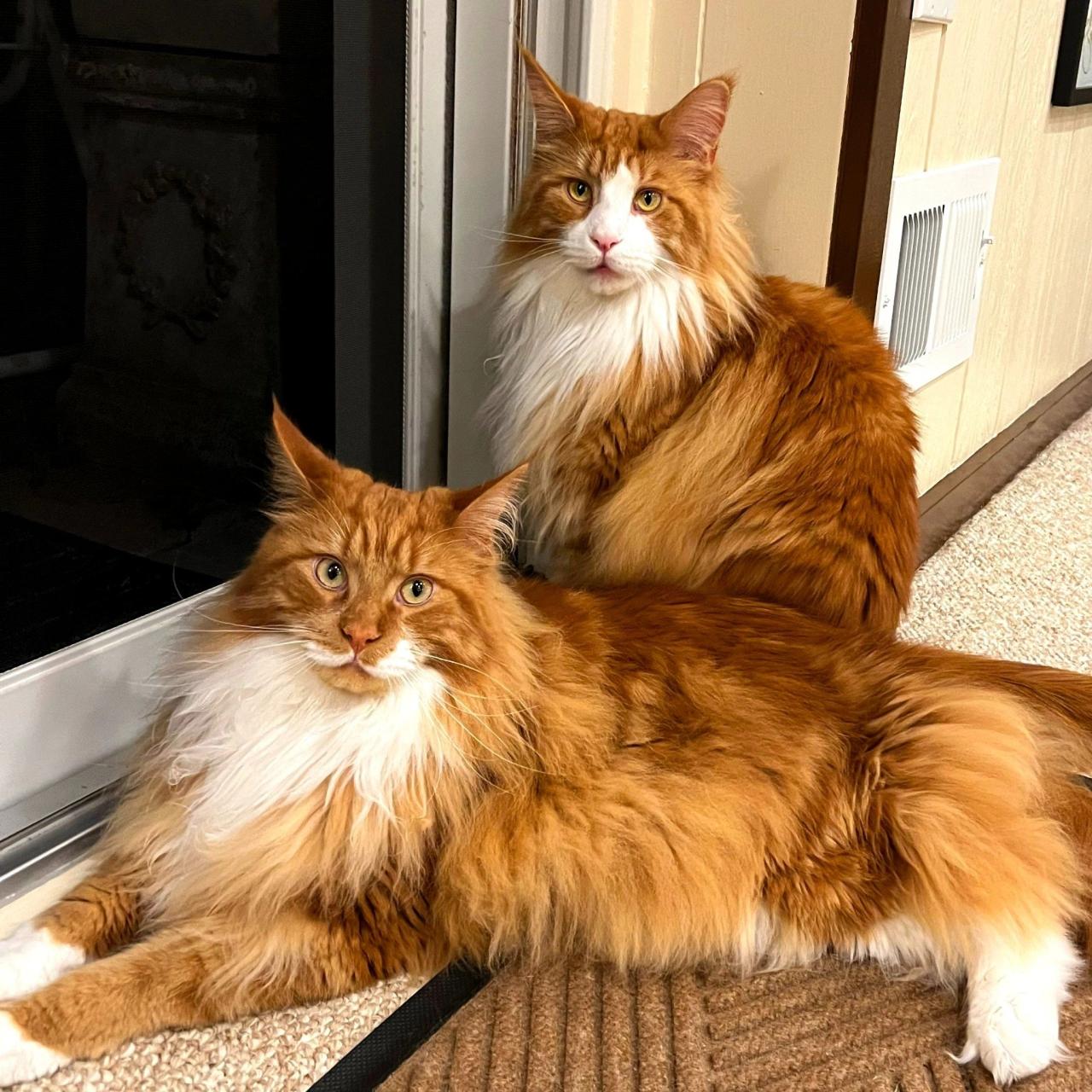
As you embark on the journey of bringing a Maine Coon kitten into your life, remember that these gentle giants require love, attention, and proper care. With their affectionate nature and playful spirit, they will undoubtedly become a cherished member of your family.
Embrace the adventure of owning a Maine Coon and experience the joy of sharing your life with a feline companion that is truly extraordinary.

